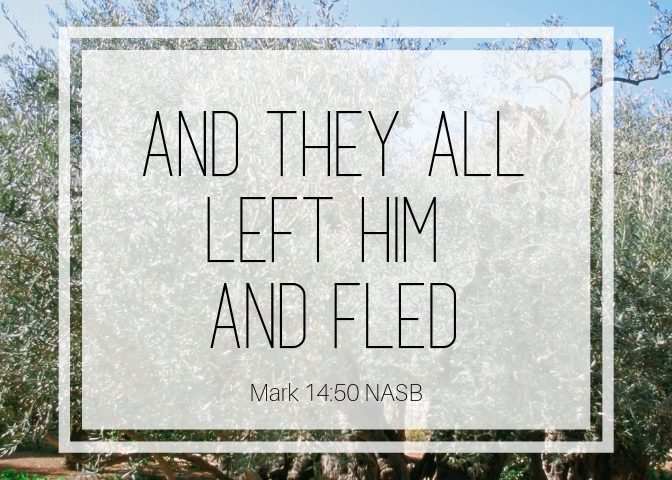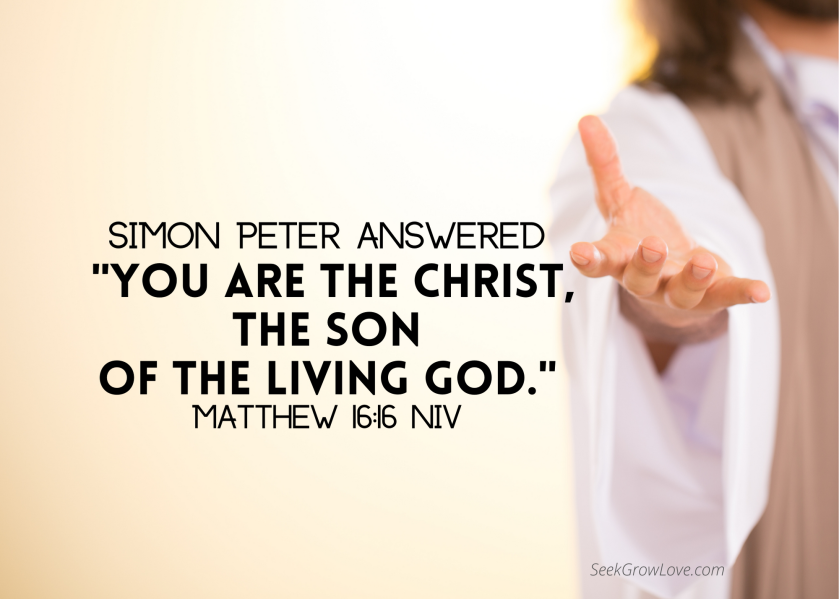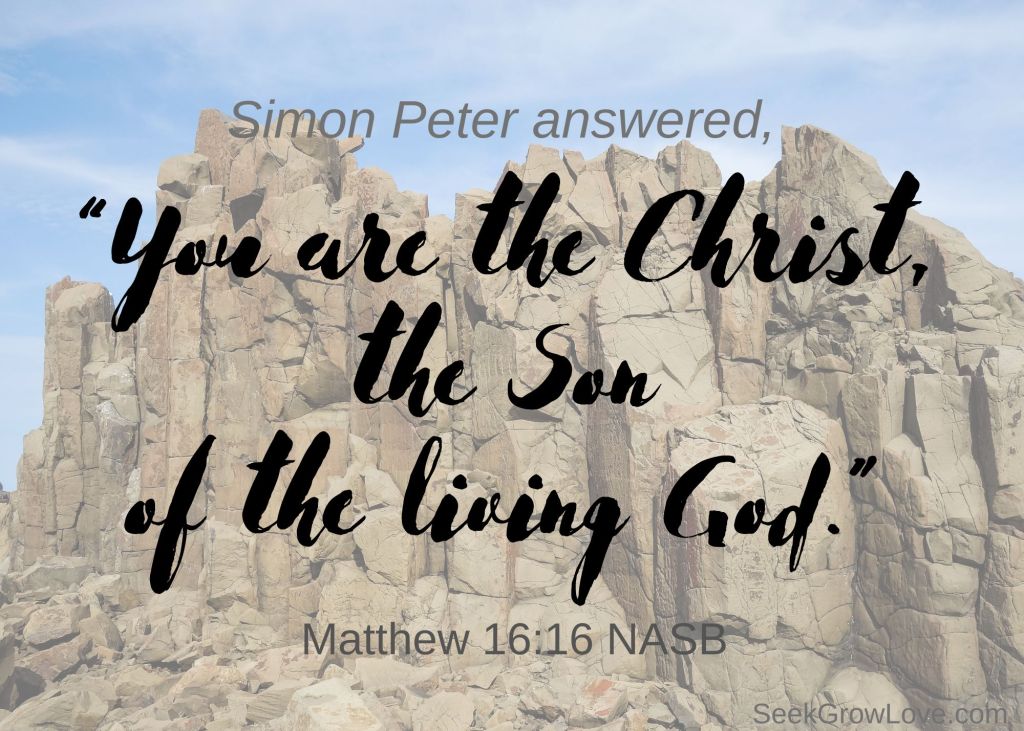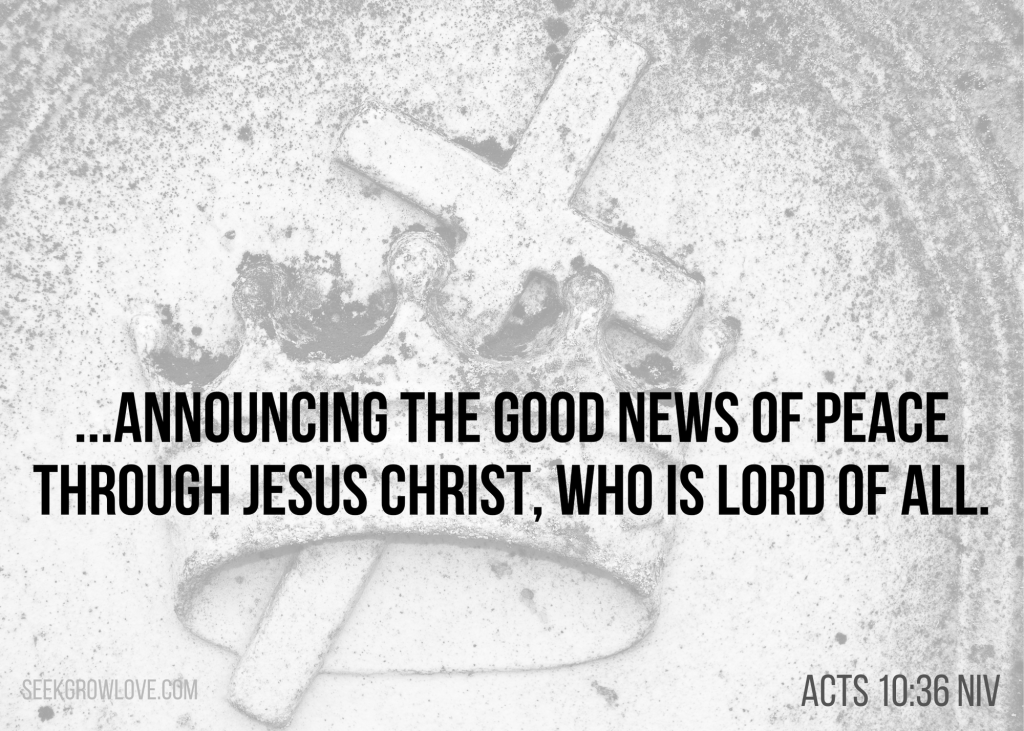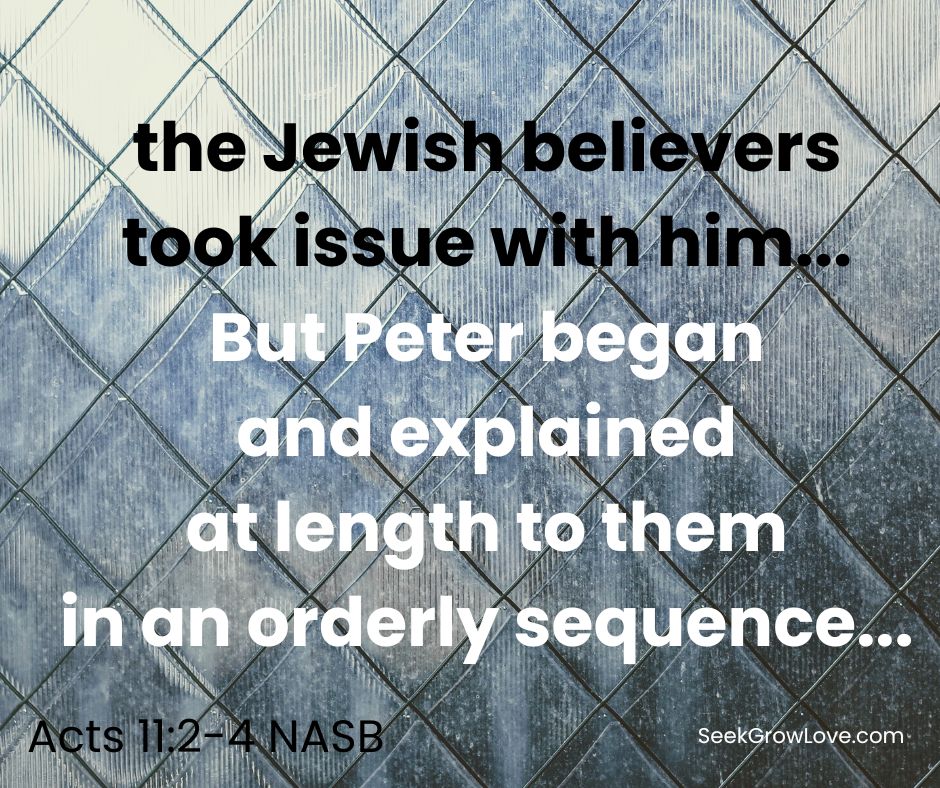
Acts 11-12
Devotion by Juliet Taylor (Tennessee)
It is good to change your beliefs based on revelation you’ve received about God’s word and what it means as it applies to your life, though it can bring on emotions you may not be prepared for. The first revelation I changed my mind about regarding the word of God was hard to handle, as it was a deeply held belief I was taught to accept and defend as truth by trusted individuals (with good intentions). But it was wrong.
I learned it was wrong by way of other trusted individuals who had studied and changed their minds. They were able to present a good case for the error originally taught. I accepted that I believed something in error, however I didn’t fully understand the new revelation. I was confused. My confusion made me rethink what I had been taught about God and his thoughts about me. Be careful, this can happen to you.
Thank God for his constant workings in me. The process I went through to cut through the confusion taught me how to not fear being wrong. It taught me to seek God for his wisdom about truth instead of holding on to pride. Pride does come before the fall, but it was good, as I was humbled. I can now handle being wrong.
What I love most about the things I learned from the reading for this week’s devotional is that God’s wisdom is blaring through the pages. We get to read about how the early Christians struggled with new revelation and what they did about it. We read about those who fell, those who were humbled, and the approach of those who did better. The better approach was rewarded with more work and a more intimate relationship with God. He gave the humble more of what they sought – his wisdom and power about what to do to spread the Gospel.
In Acts chapter 11, some Jewish Christians took issue with Peter for eating with uncircumcised men. To convince them that this was God’s will, Peter explained his vision and experience with Cornelius. They listened and responded with the right responses, “When they heard this, they quieted down and glorified God, saying, “Well then, God has also granted to the Gentiles the repentance that leads to life” (Acts 11:18). What a response.
After Stephen’s persecution however, fear took hold of some, to the point of stifling the spreading of the Gospel to Jews only. But there were some who took it to the Gentiles in Antioch. To those who didn’t let fear lead them, “the hand of the Lord was with them, and a large number who believed turned to the Lord” (Acts 11:21).
Barnabas was sent to witness the workings of God with the Gentiles by those in Jerusalem. When he witnessed the grace of God, he rejoiced and encouraged them to remain true to the Lord. Barnabas was a good man, full of the Holy Spirit and faith. He brought Paul to them and together they taught the new Christians for an entire year.
Doing God’s will (preaching the Gospel to the Gentiles, teaching them for a year, rejoicing, etc.) brought on many good things for those who were faithful to the news. They received a prophecy that there would be a famine so they behaved like Kingdom bound citizens and gave money to those in need.
But we know that doing God’s will can also make us targets. King Herod killed the disciple James. This pleased the non-Christian Jews, so he also sought Peter’s life. The church used their powerful weapon of fervent prayer, leading to an angelic rescue of Peter from prison and death.
Most in these chapters took the news of the new revelation from Peter very well. They rejoiced and accepted the news straight away. They got to work for the Lord, preaching the Gospel to the Gentiles and remaining with them for a time to help them grow.
REFLECTION QUESTIONS
There were many things the disciples did right when they heard the new revelation from Peter. What are some good actions you can take to help someone so that they don’t fall when learning something new?
What do you think Barnabas and Paul taught the new Christians in Antioch for the year they stayed with them?
Herod was eaten by worms and died after an angel of the Lord struck him because he did not give God the glory when the people he fed cried out, “the voice of a god and not of a man!” Why do you think he was met with this immediate consequence?

